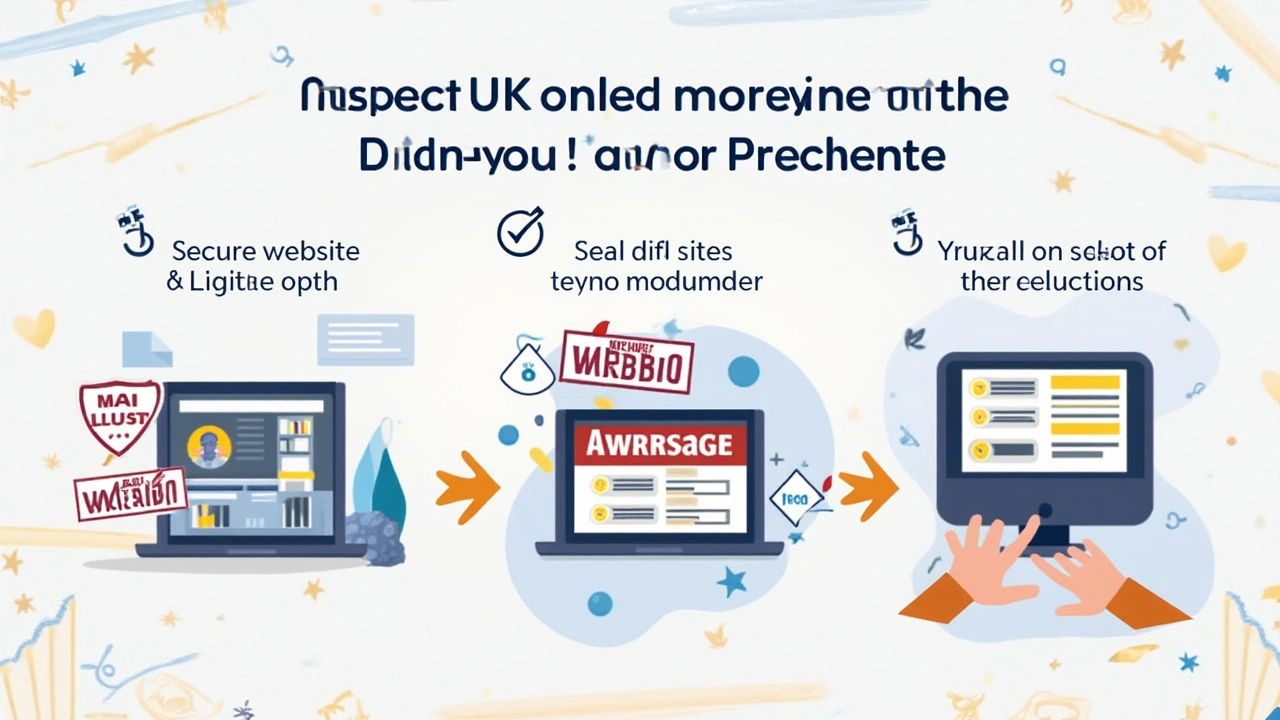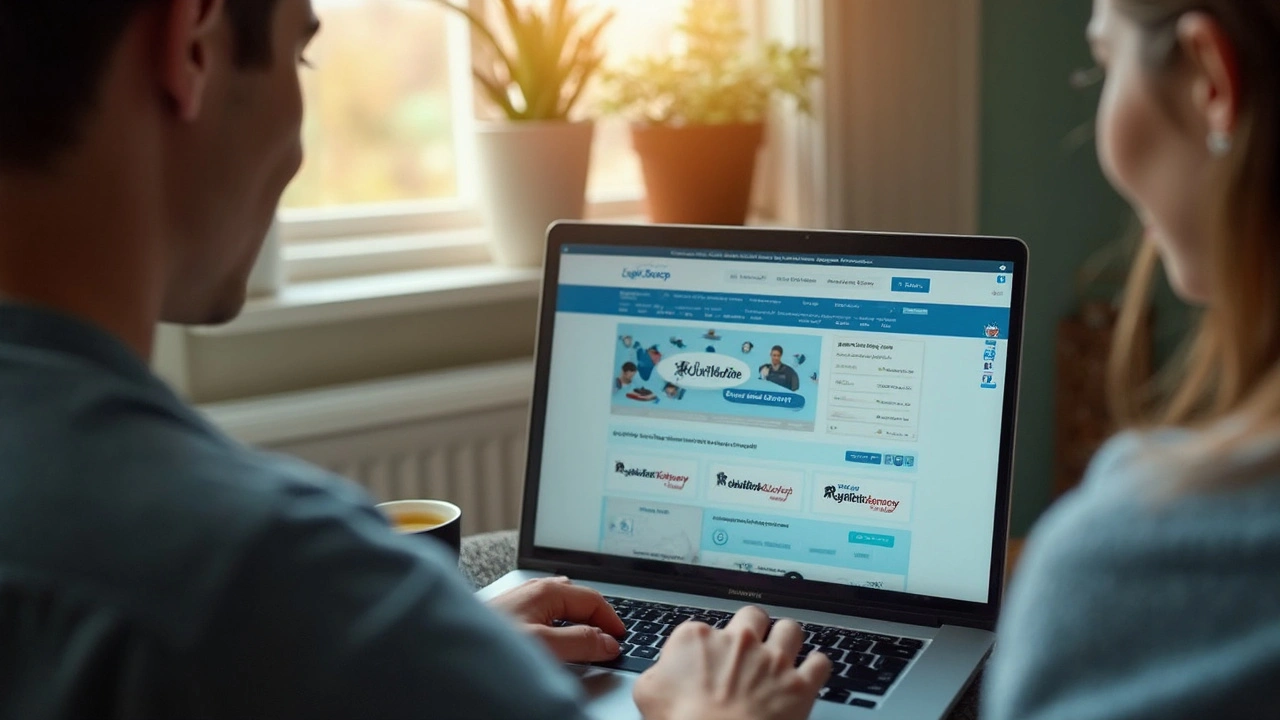What Makes LegitScript the Gold Standard for Telemedicine Pharmacies?
You might be surprised to learn that there are thousands of online pharmacies—but only a sliver meet real, globally recognized safety standards. Enter LegitScript, the watchdog that separates reputable telemedicine pharmacies from shady operators in the wilds of the internet. What sets LegitScript apart? Unlike random ‘verified’ badges, their approval process isn’t for show. Pharmacies undergo one of the most thorough vetting procedures anywhere—analyzing business practices, regulatory compliance, physician involvement, privacy, and data protection. That means a LegitScript seal signals much more than a fancy logo; it’s a green light from experts who actually dig into a pharmacy’s daily operations and track its reputation over time.
LegitScript’s standards are not only recognized by governments, major search engines, and payment processors, but they’re also designed to keep patients safe from counterfeit or substandard drugs. Their database powers decision-making at Google and Bing about which pharmacies can advertise, and even influences credit card processors on what sites can take payments. According to a 2023 press release by Google Health:
“We rely on LegitScript’s certification to ensure health-related ads appearing on our platform are from safe, legitimate sources.”That’s some serious clout—including the power to shut down online pharmacies if they fail ongoing checks. If you see LegitScript approval, you’re getting a pharmacy that’s survived ongoing audits, not just a one-time review. And the process is global: both US and international telemedicine platforms undergo exactly the same scrutiny, from medical licensure to secure prescription handling.
The LegitScript system wasn’t born overnight. The company’s roots trace back to the mid-2000s, when the rise in illegal online drug sales drew federal concern in the US and Europe. Today, LegitScript is considered the most accepted standard by regulators, banks, insurers, and health networks. It means peace of mind for anyone buying medicine over the internet—especially if you’re treating sensitive conditions like ED or chronic pain, where privacy and quality matter most.
Accreditation Criteria: How Do Pharmacies Get LegitScript’s Seal?
A pharmacy hoping for LegitScript accreditation can’t just apply and hope for the best. This is a grueling, information-heavy process. It starts with proof: corporate filings, pharmacy licenses, pharmacist credentials, professional insurance, and supply chain transparency. The pharmacy must show it only dispenses medications sourced directly from authorized manufacturers or wholesalers. Pop-up or shell companies, which make up a lot of the web’s unregulated landscape, get weeded out in the first steps.
Pharmacies also need to adhere to all federal and state laws where they operate—so, for example, if you’re seeking a prescription in the US, the prescribers must have valid medical licenses in the state where the patient is located. LegitScript then reviews the website’s prescription policies. No prescription, no medicine. Pharmacies that ship drugs without a licensed physician’s review get blacklisted. There’s also a hard line on controlled substances. Sites pushing opioids, benzodiazepines, or other restricted drugs face instant rejection.
The approval process dives deep into patient privacy. LegitScript looks for encryption standards, secure forms, genuine privacy statements, and transparent data use policies. The application is just step one. If everything checks out, ongoing monitoring kicks in—meaning random audits, secret shopper purchases, and continuous review of licensing status. Even a hint of unexplained activity can trigger an immediate suspension until the problem is fixed.
- Licensing: All pharmacists and physicians must prove credentials for each location they serve.
- Transparent Pricing: Pharmacies are checked for hidden fees, upcharges, or misleading discounts.
- Clear Contact Info: LegitScript requires phone numbers and physical addresses that actually work, not ghost data.
- Secure Medication Handling: Proof that medicines are stored, handled, and shipped according to strict industry guidelines.
- Ongoing Compliance: Accreditation is only valid as long as the pharmacy plays by the rules.
Notably, only a handful of telemedicine pharmacies globally have ever faced up to LegitScript’s standards. According to a 2024 industry report, less than 5% of online pharmacies selling ED medications could meet full accreditation—a wild reminder of the minefield facing everyday shoppers.

Spotting Red Flags: How to Avoid Dangerous or Fake Online Pharmacies
The ugly truth? About 95% of online pharmacies fail to meet basic verification standards, and plenty sell pills that are completely fake or even dangerous. What’s scarier—some fake pharmacies copy logos, post fake reviews, and spoof government certifications, making it hard to tell them apart from the real deal. So how do you stay safe? It starts with playing detective before plugging in your credit card.
Always check for a LegitScript or other legitimate accreditation badge. But don’t stop there—click the badge and confirm it leads to an official registration or profile page (not just a picture). Real pharmacies will ask for a valid prescription and patient information—never trust a site that sends you meds after a simple “online consultation” that feels like a quiz, or, worse, on no information at all. If the price sounds too good to be true, it probably is; rock-bottom prices usually signal sketchy origins or expired stock.
Check who’s really behind the website. Trustworthy pharmacies have real physical addresses, working customer service numbers, and no trouble sharing their pharmacist licenses when asked. Read third-party reviews—not just ones posted on the pharmacy’s own site. Watch for poor spelling, weird URLs, or design that looks like it was cobbled together in a hurry. These are all classic signals of a site designed to vanish at the first sign of trouble.
- No Prescription Needed? Run away. It’s illegal—and dangerous—to bypass a doctor’s review.
- Unrealistic Shipping Coverage: Claims to “ship anywhere in the world, instantly” are straight from scam playbooks.
- Payment Methods: Real pharmacies accept credit cards (with processor-backed guarantees). Demand for obscure cryptocurrencies or wire transfers are red flags.
- Unverifiable Credentials: Anyone can fake a certificate. Always cross-reference with official directories (like LegitScript’s database).
- Pushy Upselling: If a site pushes unnecessary extras or “add-ons,” it might be focused on cash, not care.
According to LegitScript’s 2023 Online Pharmacy Safety Study, 64% of fake online pharmacies use either photoshopped or totally fabricated reviews. Always check independent review sites and government warnings for any reports linked to the website you’re considering.
Buying Medicines Online Safely: Tips From the Pros
Worried about privacy or getting the wrong product? Even tech-savvy shoppers can get tripped up by fake websites. Here are strategies you won’t hear from most pharmacy blogs. Before you buy, enter the site’s URL directly into LegitScript’s public search tool—it takes seconds and shows instantly if the site is accredited, under review, or blacklisted. Next, use a credit card for extra purchase protection. If something’s amiss, card issuers are much more likely to refund your money than if you used a wire transfer or a cryptocurrency wallet.
Always compare a pharmacy’s address and contact info with what appears in public business directories. For US shoppers, double-check pharmacist licenses with your state’s pharmacy board. If your prescription arrives looking different from your usual supply—like odd colors, packaging, or markings—stop and call the pharmacy for an explanation before taking it. LegitScript-approved pharmacies are required to use secure packaging with tamper-proof seals and proper labeling, so you should always know what you’re getting and who it’s from.
Shield your data: stick to pharmacies using strong web encryption (URLs starting with “https” and browser lock icons). Look for clear privacy statements outlining exactly how your data will be used and who will see it (no fine print sneakiness). Most certified pharmacies will let you choose discreet shipping options if you’re worried about privacy, too.
If you’re searching for sensitive medications, such as for erectile dysfunction, there’s a shortcut—here’s a list of trusted online ED pharmacies that have been evaluated for safety, pricing, and legitimacy. But doublecheck for LegitScript status just to be safe. Don’t rely on “top 10” lists unless the sources are truly independent or link directly to regulatory records.
| Check | What to Look For |
|---|---|
| Website Status | Accreditation with LegitScript or pharmacy board |
| Physician Involvement | Licensed prescriber, not just online quizzes |
| Payment Safety | Credit card option, not only crypto or wire |
| Drug Packaging | Tamper-proof, clear labeling, matches your prescription |
| Customer Support | Reachable phone/email, real staff |
Practicing these steps practically bulletproofs your online pharmacy experience—no matter what you’re shopping for.

The Bottom Line: Why Choosing LegitScript-Accredited Pharmacies Matters
The pharmacy you choose can make the difference between safe, effective treatment and major risk—no exaggeration. With counterfeit drugs flooding the web—even showing up in packages that look eerily real—third-party verification matters. LegitScript-approved pharmacies have to meet stricter standards than most brick-and-mortar stores, with constant checks and zero room for error. This is especially crucial for remote consultations, where you’re putting trust in an online process you might never see firsthand.
Patients who order from LegitScript-certified telemedicine pharmacies get more than medicine—they get reliable care, privacy protection, and support if problems crop up. These pharmacies often partner with legitimate telehealth providers so you can see a doctor, get a prescription, and fill it from the same safe platform. That’s huge if you’re managing ongoing health issues, have tight schedules, or just value an extra level of discretion.
It’s not only about protecting your health—there’s also your digital identity at stake. Non-accredited pharmacies are a favorite target for hackers, phishing scams, and data thieves. Even if you get a real product, you may be handing your most sensitive data to criminals halfway around the globe. So just because a site has a flashy ad or “customer testimonials” doesn’t mean it’s legit.
With stricter regulations hitting the telemedicine sector year after year, it’s a fair bet that LegitScript-style vetting will only get tougher. Bottom line? If you’re going to source meds online, it pays to do your homework, stick to accredited pharmacies, and never let a too-good-to-be-true deal cloud your judgment. As the landscape for online healthcare changes, LegitScript’s approval might be the smartest badge you trust in your next prescription run.



17 Comments
Jen R May 4, 2025 AT 14:34
LegitScript is the gold standard, no surprise.
Joseph Kloss May 12, 2025 AT 17:01
Reading this feels like diving into a bureaucracy of health‑care watchdogs. The prose tries to sound authoritative, but the endless buzzwords drown the real message.
Anna Cappelletti May 20, 2025 AT 19:28
First off, thanks for breaking down the LegitScript process in such a friendly way!
It’s amazing how many people scroll past this kind of info and end up on sketchy sites.
The step‑by‑step description of licensing, pricing transparency, and secure handling really helps demystify the whole thing.
I especially love the reminder to double‑check the badge link; that’s a practical tip most guides skip.
When you talk about the ongoing audits and secret‑shopper program, it reassures me that the seal isn’t just a one‑time photo‑op.
Also, the table at the end is a great quick‑reference for anyone who’s short on time.
For newcomers, I’d add a note about checking state pharmacy board websites for the same licensing info – it’s another layer of verification.
And a heads‑up: some legitimate pharmacies may still have a slightly slower checkout because they’re extra careful with privacy, which is a good thing.
Overall, this guide does a stellar job of turning a complicated regulatory landscape into something approachable.
Keep the tone upbeat and the steps clear, and you’ll help a lot of people stay safe.
One final suggestion: a short FAQ on “What to do if you suspect a counterfeit” would round it out nicely.
But honestly, you’ve covered the essentials already.
Thanks for the thoroughness – it’s exactly what the community needs.
Let’s keep spreading awareness and encouraging safe online health practices.
Dylan Mitchell May 27, 2025 AT 18:08
Yo, this guide is like a drama series of pharmacy checks!
LegitScript is the hero that swoops in, saving us from the villainous fake med dealers.
Elle Trent June 2, 2025 AT 13:01
Honestly, the jargon is a bit heavy, but the core message hits home – stick to certified sites.
Skipping the red flags can cost you more than you think.
Jessica Gentle June 8, 2025 AT 07:54
Great point about checking the actual badge link – many people just glance at the logo and assume it’s legit.
If you want to be extra safe, copy the pharmacy’s name into the LegitScript search bar and verify the status directly.
Also, consider using a credit card with purchase protection; it adds a safety net if the pharmacy turns out shady.
Samson Tobias June 15, 2025 AT 06:34
This article really empowers shoppers to make informed decisions.
It’s good that it emphasizes both privacy and product integrity.
Alan Larkin June 21, 2025 AT 01:28
👍 Absolutely agree – the encryption tip is crucial.
Also, a quick phone call to the pharmacy can confirm they have a real pharmacist on staff.
John Chapman June 28, 2025 AT 00:08
The guide wisely notes that LegitScript audits are ongoing, not just a one‑off certification.
This continual oversight is what separates reputable pharmacies from flash‑in‑the‑pan operations.
Tiarna Mitchell-Heath July 3, 2025 AT 19:01
Stop beating around the bush – if a site offers "shipping anywhere instantly," it’s a scam.
Katie Jenkins July 10, 2025 AT 17:41
The breakdown of accreditation criteria is thorough and well‑structured, covering licensing, pricing, contact information, and secure handling in detail.
It’s helpful that the guide stresses the need for actual, verifiable physician credentials for prescriptions, which many fraudulent sites skip.
Readers will appreciate the reminder to verify encryption (HTTPS) and look for tamper‑proof packaging as a sign of legitimacy.
By highlighting the rarity of fully accredited telemedicine pharmacies – less than 5% in certain markets – the guide underscores the importance of due diligence.
The checklist format at the end serves as a quick reference that busy shoppers can use without rereading the whole article.
Overall, the guide balances depth with accessibility, making a complex regulatory topic understandable for a general audience.
Jack Marsh July 16, 2025 AT 12:34
While the checklist is useful, one could argue that the article glosses over the real cost of constantly monitoring these sites.
Terry Lim July 23, 2025 AT 11:14
Stop ignoring the obvious – unverified sites are a disaster waiting to happen.
Cayla Orahood July 29, 2025 AT 06:08
Fine, but think about the hidden networks pulling strings behind those “legit” badges.
There’s always a shadow lurking.
McKenna Baldock August 5, 2025 AT 04:48
It’s fascinating how regulatory bodies and private firms like LegitScript intertwine to create a safety net for consumers.
This symbiosis, while not perfect, does raise the bar for online health commerce.
Roger Wing August 10, 2025 AT 23:41
Sure but the guide could use more real‑world examples of failures not just successes
Matt Cress August 17, 2025 AT 22:21
Oh great another checklist, because we needed more of those – love it.